Republican National Convention: Hillbilly elegist a considered voice for outsider America
JD Vance’s eight-year-old book raced to No.1 on Amazon’s bestseller this week. Why wouldn’t the same emotions swamping the 2024 election engulf Donald Trump’s pick for vice-president?
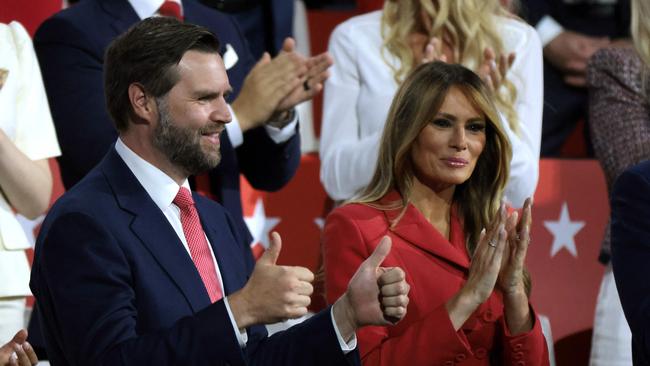
For some, the eight-year-old book became too hot to handle. Goodreads stopped taking reviews about Hillbilly Elegy this week, the website reporting that “this may be because we’ve detected unusual behaviour that doesn’t follow our review guidelines”.
Unusual activity? Given the wild drama these past few weeks in the US presidential campaign, it’s a tiny ripple then to read the BBC reporting that readers had been “bombing” Goodreads review page. Some bombing it with love for Vance’s memoir. Others with hate.
Why wouldn’t the same emotions swamping the 2024 election engulf Trump’s pick for vice-president?
Everyone’s talking about Vance this week. That’s quite a feat given the major dramas concern a senile old Democrat refusing to step aside for a younger, competent candidate, and an assassination attempt against Donald Trump so close that a tilt of his head would have left him dead. A Secret Service failure of such mammoth proportions understandably raises questions about recklessness, at the very least.
Those going crazy about Vance, one way or another, see another Trumpian-styled saviour or another Trumpian devil. It’s cartoonish. Vance is more complicated than that. His policy positions from Ukraine to globalisation and the role of government most certainly deserve scrutiny. He’s not a neat fit for Ronald Reagan or George W. Bush or even Trump.
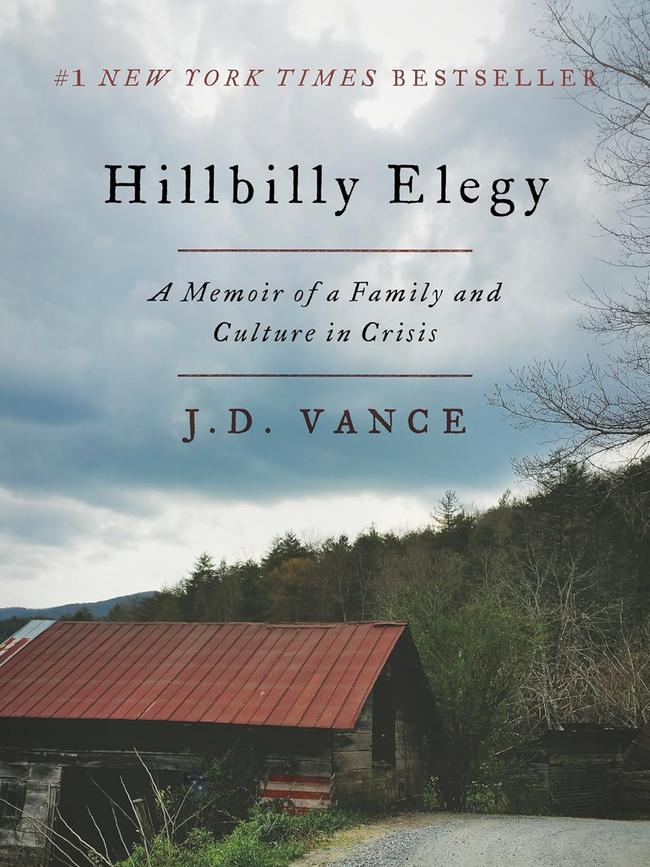
His critics don’t like his lack of political experience. What they don’t address is this: what have the vast numbers of long-in-the-tooth experienced politicians done for American politics in recent decades? Except in many instances to ensure their disconnect from their own country?
The 39-year-old cleanskin gave an electrifying address at the Republican National Convention on Thursday. His pitch to the American heartland was authentic, compelling. “When I was in the fourth grade, a career politician by the name of Joe Biden supported NAFTA, a bad trade deal that sent countless good jobs to Mexico,” Vance said.
When he was in high school, Vance noted, Biden backed a China trade deal and the US invasion of Iraq.
“And at each step of the way, in small towns like mine in Ohio, or next door in Pennsylvania, or in Michigan and other states across our country, jobs were sent overseas and children were sent to war,” he told the packed stadium in Milwaukee.
Watched by millions more outside that stadium, Vance beseeched Americans to be “united in our love for this country and committed to free speech and the open exchange of ideas”.
Trumpism was never about Trump. It’s not about his chosen running mate, either. It’s about people left behind by elites on both sides of the political divide. That said, it won’t hurt that Vance is smart, handsome and young – the first millennial to feature at the top of the Republican ticket – and he hails from the downtrodden de-industrialised American heartland. That’s why so many are going back to his memoir.
Hillbilly Elegy: A Memoir of a Family and Culture in Crisis was a wild success when it was published in June 2016 just months before Trump won the November ballot.
Back then Vance wasn’t a politician. He was a guy in his early 30s who worked in finance and penned a gritty, gut-wrenching memoir about growing up in a de-industrialised part of America. Vance was among the millions of American outsiders cast adrift by an elite culture, left behind by Wall Street and ignored by Washington.
He grew up poor in the midwest rust-belt of Middletown, Ohio, and spent summers with his mother’s family, a ragamuffin crowd of Kentucky hillbillies. There is an alcoholic father somewhere, and a revolving door of deadbeat men who hooked up with his drug-addicted mother.
And a smoking, cursing, loving grandmother – his Mamaw – who extracted him from a destiny where kids leave school early and end up jobless and hopeless. Where teenage pregnancies are rife, along with broken homes, crime, addiction and violence. Against all odds, Vance joined the military, served in Iraq and went to Yale law school.
During Trump’s election campaign in 2016, everyone was interested in the bestselling Hillbilly Elegy. A New York Times review in August that year praised Vance for advancing an important conversation about the causes of dysfunction among America’s white underclass.
“Mr Vance has inadvertently provided a civilised reference guide for an uncivilised election, and he’s done so in a vocabulary intelligible to both Democrats and Republicans,” wrote Jennifer Senior from The Atlantic.
Vance ticked the top four boxes on the checklist of modern privilege, wrote Senior. He was white, male, straight, Protestant. But she pointed out that those boxes told you very little about Vance – and indeed many like him: “His people – hillbillies, rednecks, white trash, choose your epithet (or term of affection, depending on your point of view) – didn’t step off the Mayflower and become part of America’s ascendant class.”
“Poverty is the family tradition,” wrote Vance. White privilege was always a poor choice of words for Vance, and people like him who grew up in rust-belt towns and rural parts of America where blue-collar industries were dying. His life gave him authority to describe a broader social decay within a hillbilly culture where “learned helplessness” had taken root. His story about a substratum of American society untethered from personal responsibility resonated with its frankness.
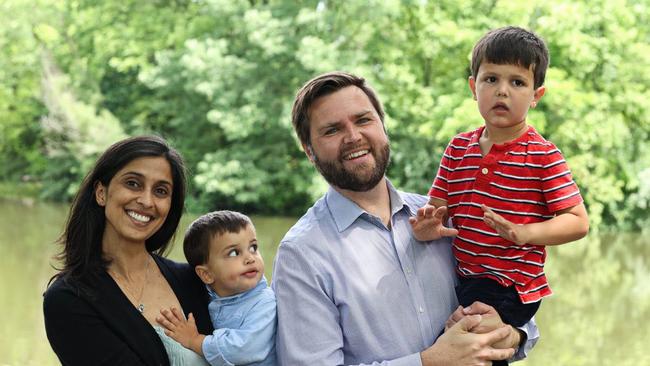
Peak wokeness was just around the corner. The day before Netflix released Ron Howard’s movie version of Hillbilly Elegy featuring Glenn Close and Amy Adams, staff at Penguin were having a big cry – as in literally crying their eyes out during a staff meeting where they complained that their employer was publishing Jordan Peterson’s Beyond Order: 12 More Rules for Life.
In many ways, Trump picking Vance as his running mate makes perfect sense. Though Trump is not mentioned in the book, or the movie, Vance’s bootstrap story of survival and success explains why millions of Americans, left behind by globalisation and other elite obsessions, sided with a wealthy insider who campaigned for the working class as a shameless outsider.
Trump used three words during the 2016 campaign that resonated the most: “Drain the swamp.”
In the years since, Biden and the Democrats have done little to settle that sentiment. Neither has the other side, hence Trump’s takeover of the GOP.
It’s true that Vance described Trump as “unfit for office” in a column he penned for The New York Times in August 2016. But to understand why Vance is on the Trump ticket, one needs to move beyond an excitable media reaching into the past for “gotcha” moments. What matters is not that Vance has changed his mind about Trump. What matters more is the other stuff that Vance said that the media isn’t reporting.
Writing two months after Hillbilly Elegy was published, Vance recalled his grandma – Mamaw – reminiscing with pride about World War II.
“We did it,” she beamed when speaking to Vance some 50 years later. “We freed the whole world from tyranny.”
Yet when her grandson enlisted weeks after the US invaded Iraq, she called Vance a “grade A-idiot”. Though proud of serving his country, Vance wrote that “war is about more than service and sacrifice – it’s about winning”.
While tyranny was defeated in Europe many decades ago, “Americans today look at a Middle East that is humiliatingly worse off than when we found it,” he wrote.
Vance understood that the human cost of that humiliation fell hardest on Republican strongholds. The military is filled with men and women from the south, from rural communities, with whites making up a disproportionate number of those killed or injured in action. Add in the failure of Department of Veterans Affairs to care for those who returned.
“The Republicans never addressed the anger of their own voters,” wrote Vance.
But Trump did, Vance said in that New York Times column, some seven years before the man from Ohio entered congress. Trump spoke to those furious with a political elite that sent their children “to fight and bleed and die in Iraq”.
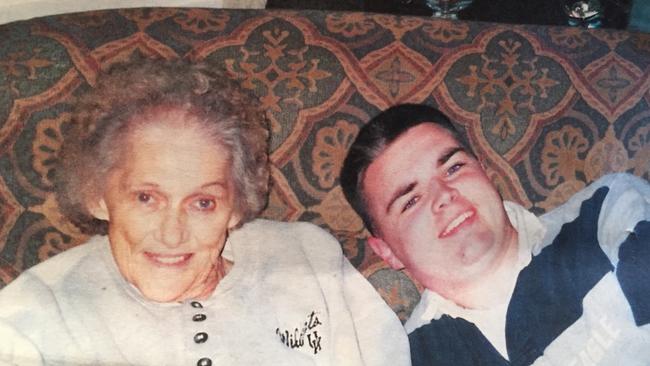
There is a lasting scepticism among many Americans towards spilling blood and treasure on foreign soil with no hope of winning.
This week, Meet the Press host Kristin Welker tried to ping Vance for something else he said years ago. As Trump took the mantle from Barack Obama, Vance wrote nice things about the former president. The NBC host thought she’d found a skeleton in Vance’s closet. It was amateurish stuff.
“The president’s example offered something no other public figure could: hope,” Vance wrote in The New York Times in January 2017.
“I wanted so desperately to have what he had – a happy marriage and beautiful, thriving children. But I thought that those things belonged to people unlike me, to those who came from money and intact nuclear families. For the rest of us, past was destiny.”
“On Jan. 20, (2017) the political side of my brain will breathe a sigh of relief at Mr Obama’s departure. I will hope for better policy from the new administration … But the child who so desperately wanted an American dream, with a happy family at its core will feel something different. For at a pivotal time in my life, Barack Obama gave me hope that a boy who grew up like me could still achieve the most important of my dreams. For that, I’ll miss him, and the example he set.”
Vance told the NBC host that he stood by his comments, that admiring a good husband, a good father, has nothing to do with politics.
Once you read Hillbilly Elegy, and go beyond clickbaity headlines about Vance, his meteoric rise to become Trump’s running mate is not hard to understand and admire.



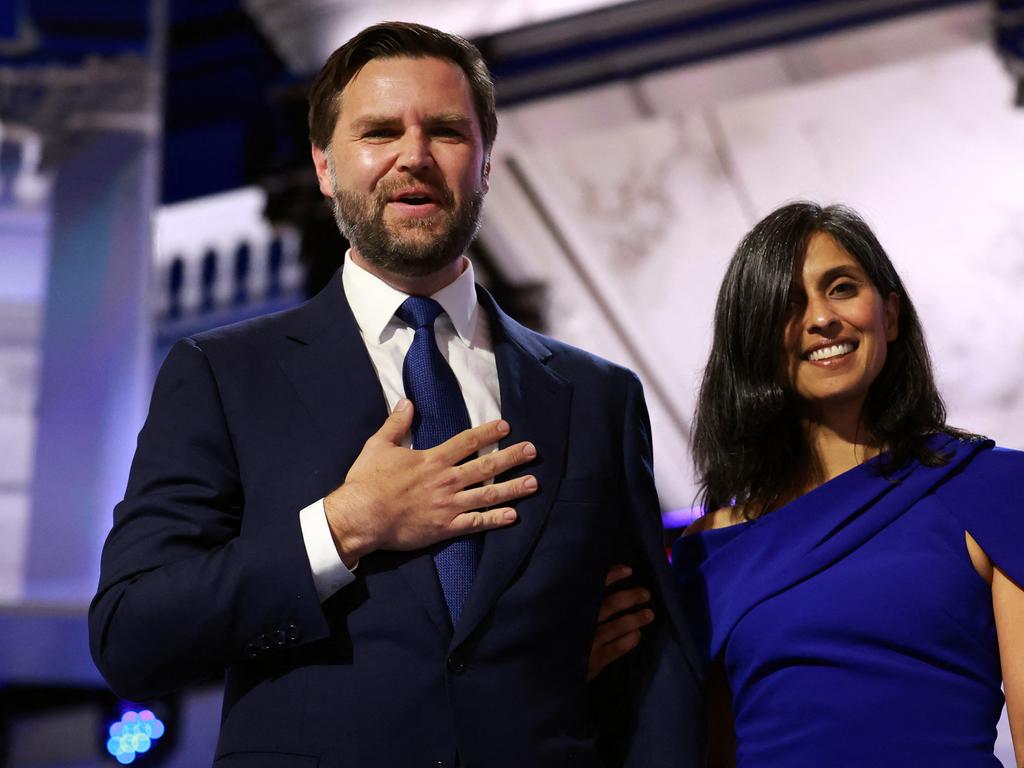


Published in 2016, Hillbilly Elegy raced to No.1 and No.2 on Amazon’s bestseller lists this week after Donald Trump announced its author, JD Vance, as his 2024 running mate.